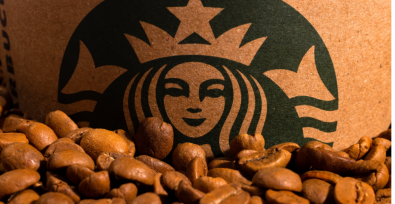On April 24, 2025, the advocacy group International Rights Advocates (IRA) filed a federal class-action lawsuit against Starbucks. The suit alleges that the global coffee giant knowingly profited from coffee harvested through forced labor in Brazil. Simultaneously, Coffee Watch submitted a petition to US Customs and Border Protection to block imports of coffee produced with forced labor.
The case centers around eight Brazilian workers identified as John Doe 1 through 8. Starbucks trafficked each plaintiff to work on coffee farms. Among them is “John,” who was recruited just days before turning 16. He endured grueling 12-hour shifts under the sun, unpaid and unprotected, until he was rescued in a government raid. The Brazilian labor ministry determined he had been subjected to “child labor in hazardous conditions” and “slavery-like” exploitation.
A case that could reshape the global coffee industry
The lawsuit, filed in the US District Court for the District of Columbia under the Trafficking Victims Protection Reauthorization Act. It targets Starbucks and its major Brazilian supplier, Cooxupé—the largest coffee supplier in the country.
According to IRA’s executive director Terry Collingsworth, “Slavery was abolished in the U.S. in 1865 and in Brazil in 1888, yet Starbucks’ premium-priced coffee relies on a production system that perpetuates human trafficking and modern slavery.”
Coffee Watch’s CBP petition complements the legal action, providing extensive documentation of systemic abuse across Brazil’s coffee industry. The petition urges the government to block imports of Brazilian coffee tainted by forced labor—not just from Starbucks, but also from Nestlé, Dunkin’, Illy, McCafé, and Jacobs Douwe Egberts.
According to the complaint by IRA, despite labor inspectors visiting only about 0.1% of Brazil’s 200,000 coffee farms, authorities have rescued nearly 3,700 workers from slavery-like conditions since 1996. Etelle Higonnet, Coffee Watch’s founder, stated,
“This isn’t about a few bad actors. We’re exposing an entrenched system that traps millions in poverty and thousands in slavery.”
In a report by The Guardian, Higonnet adds,
“If we’re able to convince CBP that our case is watertight … that would be a gamechanger because thousands of people have been found in those conditions by Brazilian authorities, and clearly what has been done till now is not solving the problem.”
Additionally, the petition calls attention to life-threatening conditions faced by workers. This includes recent deaths, amputations, and threats of violence against those attempting to escape or speak out.
Historic injustice and ongoing exploitation
All eight plaintiffs in the case are from quilombos—descendant communities of escaped enslaved Africans—where poverty and marginalization remain widespread.
The Guardian reports,
“The logic behind coffee production here is one of precarious labour that has always been imposed on Black people throughout our history,” said Jorge Ferreira dos Santos Filho, coordinator of Adere, a workers’ organisation that assists authorities in identifying victims in such conditions.
“In rural areas especially, we as Black people end up falling into these situations because we have no other choice and need to put food on the table,” said Santos Filho, who is Black and says he was subjected to forced labour on at least four occasions.
This is not the first time Starbucks has faced scrutiny over its ethical claims. In January 2024, investigations revealed that despite its marketing promises of “100% ethically sourced” coffee, Starbucks continued to source beans from suppliers previously flagged for labor violations. The report exposed significant gaps in the company’s due diligence processes, with auditors allegedly overlooking known labor abuses on certified farms.
“This lawsuit and the CBP petition aren’t anomalies—they’re the consequence of years of Starbucks hiding behind empty slogans,” said Higonnet.
“Ethical sourcing means nothing if it’s built on broken promises and ignored red flags.”
Starbucks claims “ethical sourcing” but turns a blind eye
In response, a Starbucks spokesperson stated the company’s ethical sourcing program, Coffee and Farmer Equity (C.A.F.E.) Practices, developed in collaboration with Conservation International. The company claims this program aims to ensure economic, social, and environmental standards across its supply chain.
But for critics, such commitments ring hollow. “It’s no use claiming zero tolerance if you continue buying coffee from farms on the government’s dirty list,” said Santos Filho. With legal and regulatory pressure increasing, the coffee industry may be facing a long-overdue reckoning.
This lawsuit is a wake-up call for the industry and a test of corporate accountability in global supply chains. No company—including Starbucks— should profit from slavery anywhere in its supply chain. Sign our petition to hold companies truly accountable.







Freedom United is interested in hearing from our community and welcomes relevant, informed comments, advice, and insights that advance the conversation around our campaigns and advocacy. We value inclusivity and respect within our community. To be approved, your comments should be civil.
Starbucks. Just another massive corporation guided 100% by greed. Nothing else but profit margins and cost externalization matters. The brand is complete sullied by unfathomable greed. I ain’t buying Starbucks coffee. No way.
No more Starbucks for me!
The branch of Starbucks at Marseille airport recently fired a worker for distributing out of date sandwiches to homeless people: https://www.liberation.fr/societe/perdre-son-job-pour-une-bonne-action-a-marseille-la-riposte-de-salaries-licencies-pour-avoir-distribue-des-sandwichs-destines-a-la-poubelle-20250422_Q3ESV5YQIVHCHFS74M4MUHOH34/
I’ve boycotted Starbucks for years. It’s not a sacrifice since they burn their coffee as badly as they burn people. Love supporting independent coffee shops that know how to make coffee and source their coffee ethically.
You’re coffees are so expensive and you don’t pay these children and overwork them. I will tell my family n friends to stop buying you’re coffee. N we do not tolerate Racism . Or personal attack or abuse.